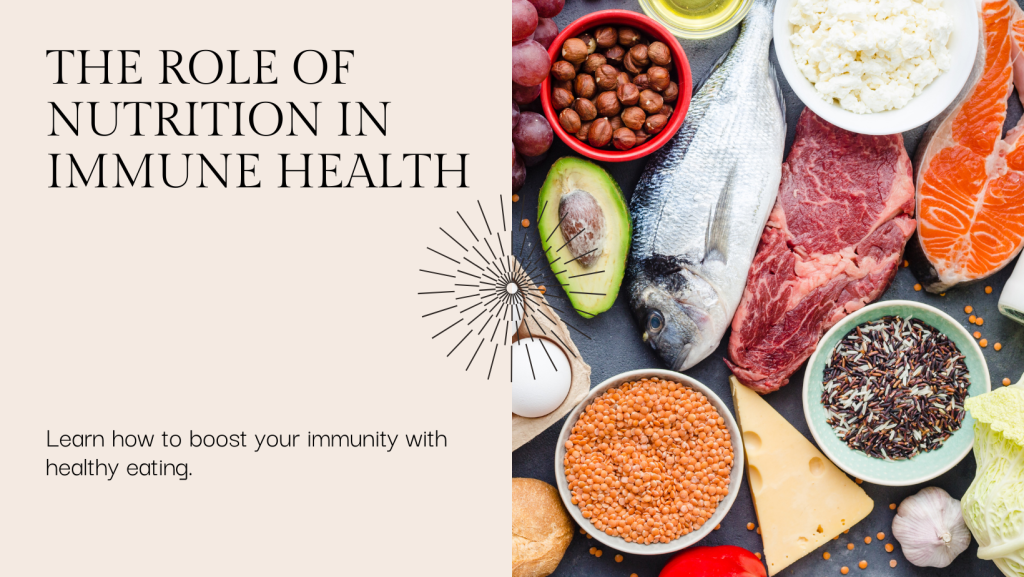In order to maintain immune function and guard against disease and infection, nutrition is essential. Essential nutrients, antioxidants, and phytochemicals found in a well-balanced diet support general health and wellbeing by fortifying the immune system. To strengthen immune function, take into account the following essential nutrients and dietary practices:
Minerals and vitamins: A strong immune system can be supported by certain minerals and vitamins, which are important for immunological function. Citrus fruits, strawberries, bell peppers, and broccoli are rich sources of vitamin C, a powerful antioxidant that boosts immunity and guards against oxidative stress. Fatty fish, fortified dairy products, and sunshine are good sources of vitamin D, which is essential for controlling immune responses and lowering inflammation. Zinc, selenium, vitamin E, and iron are additional nutrients that are crucial for immunological function.
Antioxidants: These substances work to shield cells from oxidative stress and dangerous free radical damage. Eating a diet high in foods high in antioxidants, such as whole grains, nuts, seeds, and fruits, helps boost the immune system and lower inflammation. Plant-based meals like berries, leafy greens, and herbs include phytochemicals, which have antioxidant qualities and can fortify the immune system.
Probiotics: Probiotics are good bacteria that assist immune system and gut microbiome health. Eating fermented foods such as kimchi, sauerkraut, kefir, and yogurt can boost immune function and help restore good gut flora. Probiotic supplements are also offered and may be helpful for people with immune system disorders or digestive problems.
Healthy Fats: Flaxseeds, chia seeds, walnuts, and fatty fish like salmon, trout, and sardines are rich sources of omega-3 fatty acids, which have anti-inflammatory and immune-supporting qualities. You can boost general immunological health and minimize inflammation by including sources of healthy fats in your diet.
Hydration: Water helps the body eliminate toxins, maintain cellular function, and regulate body temperature. It is crucial for immunological health. To maintain adequate hydration, make it a goal to drink lots of water throughout the day and include hydrating foods like fruits, vegetables, and herbal teas in your diet.
By focusing on nutrient-rich foods and incorporating immune-boosting nutrients into your diet, you can help support a healthy immune system and reduce your risk of illness and infection. Remember to prioritize a well-balanced diet, stay hydrated, and focus on whole, minimally processed foods to support overall health and well-being.


